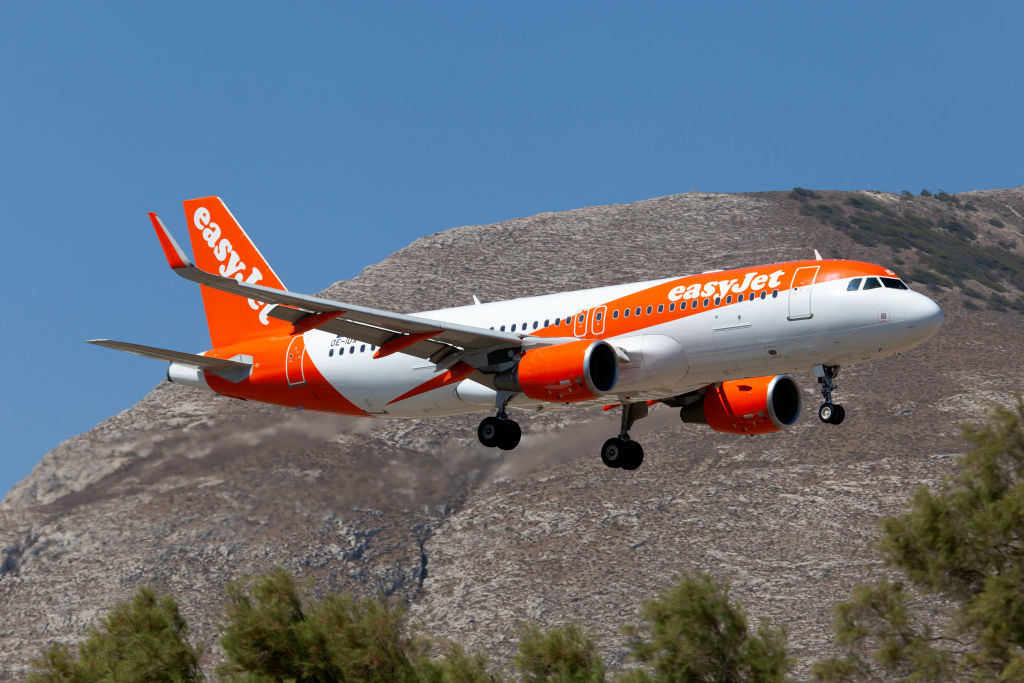EasyJet on track for ‘record summer’ - should you invest in airline stocks?
EasyJet reported headline pre-tax profits of £236 million for the three months to June 30 - up by £33 million on a year ago


Get the latest financial news, insights and expert analysis from our award-winning MoneyWeek team, to help you understand what really matters when it comes to your finances.
You are now subscribed
Your newsletter sign-up was successful
Want to add more newsletters?

Twice daily
MoneyWeek
Get the latest financial news, insights and expert analysis from our award-winning MoneyWeek team, to help you understand what really matters when it comes to your finances.

Four times a week
Look After My Bills
Sign up to our free money-saving newsletter, filled with the latest news and expert advice to help you find the best tips and deals for managing your bills. Start saving today!
Third-quarter profits at EasyJet have increased by 16%, with the budget airline saying it is on track for a record summer. Could this be a good time for airline and travel stocks?
The airline reported headline pre-tax profits of £236 million for the three months to June 30, up by £33 million on a year ago. The news comes as rival Ryanair reported first-quarter profits plummeting to €360 million – 46% lower than the same period a year ago.
EasyJet's chief executive Johan Lundgren says: "Our strong performance in the quarter has been driven by more customers choosing easyJet for our unrivalled network of destinations and value for money. We remain on track to deliver another record-breaking summer."
MoneyWeek
Subscribe to MoneyWeek today and get your first six magazine issues absolutely FREE

Sign up to Money Morning
Don't miss the latest investment and personal finances news, market analysis, plus money-saving tips with our free twice-daily newsletter
Don't miss the latest investment and personal finances news, market analysis, plus money-saving tips with our free twice-daily newsletter
The airline carried 8% more passengers in the quarter at 25.3 million and said trading was additionally bolstered by strong demand for EasyJet Holidays, with the unit seeing pre-tax profits rise to £73 million from £49 million a year earlier.
EasyJet now expects the holidays arm to deliver annual pre-tax profits of more than £180 million, up almost 50% year-on-year.
Adam Vettese, market analyst at investment platform eToro says: “Shares have pared all of this week's losses following this morning's update but are still slightly offside for the year.”
Meanwhile, an early Easter was partly to blame for Ryanair's problems, with half of the holiday period falling into the previous quarter. The airline said its traffic was up 10%, but that airfares were weaker than expected.
“While Q2 demand is strong, pricing remains softer than we expected, and we now expect Q2 fares to be materially lower than last summer,” said Ryanair chief executive Michael O’Leary. Previously, fares had been expected to be flat, or to rise modestly.
Dan Coatsworth, investment analyst at AJ Bell, notes that lower fares put more pressure on airlines to “put bums on seats and fill planes to maximise revenue potential”.
Should you invest in airline stocks?
Although Ryanair’s woes don’t bode well, EasyJet’s results are promising. One in three Brits is planning both an overseas holiday and a UK staycation this summer, according to recent research from American Express. What is more, nearly two-fifths are planning to spend more on overseas holidays this summer than last year.
This suggests the demand for travel is certainly there – even if consumers are still navigating cost-of-living pressures, such as high mortgage rates.
However, it is worth remembering that airlines operate in a highly competitive sector with customers ruthlessly shopping around for the lowest fare. They are also heavily exposed to fuel prices, which can contribute to volatile share price performance.
Finally, running an airline comes with a lot of costs. Buying or leasing planes, and then maintaining them, does not come cheap. This often means airlines have a high debt-to-equity ratio compared to other sectors.
In short, these factors combined can make for a bumpy ride for investors. If you are looking for a smoother journey, you might prefer to put your money in a different sector.
Get the latest financial news, insights and expert analysis from our award-winning MoneyWeek team, to help you understand what really matters when it comes to your finances.
Chris is a freelance journalist, and was previously an editor and correspondent at the Financial Times as well as the business and money editor at The i Newspaper. He is also the author of the Virgin Money Maker, the personal finance guide published by Virgin Books, and has written for the BBC, The Wall Street Journal, The Independent, South China Morning Post, TimeOut, Barron's and The Guardian. He is a graduate in Economics.
-
 Japanese stocks rise on Takaichi’s snap election landslide
Japanese stocks rise on Takaichi’s snap election landslideJapan’s new prime minister Sanae Takaichi has won a landslide victory in a snap election, prompting optimism that her pro-growth agenda will benefit Japanese stocks
-
 Alphabet 'is planning a 100-year bond': would you back Google for 100 years?
Alphabet 'is planning a 100-year bond': would you back Google for 100 years?Google owner Alphabet is reported to be joining the rare century bond club
